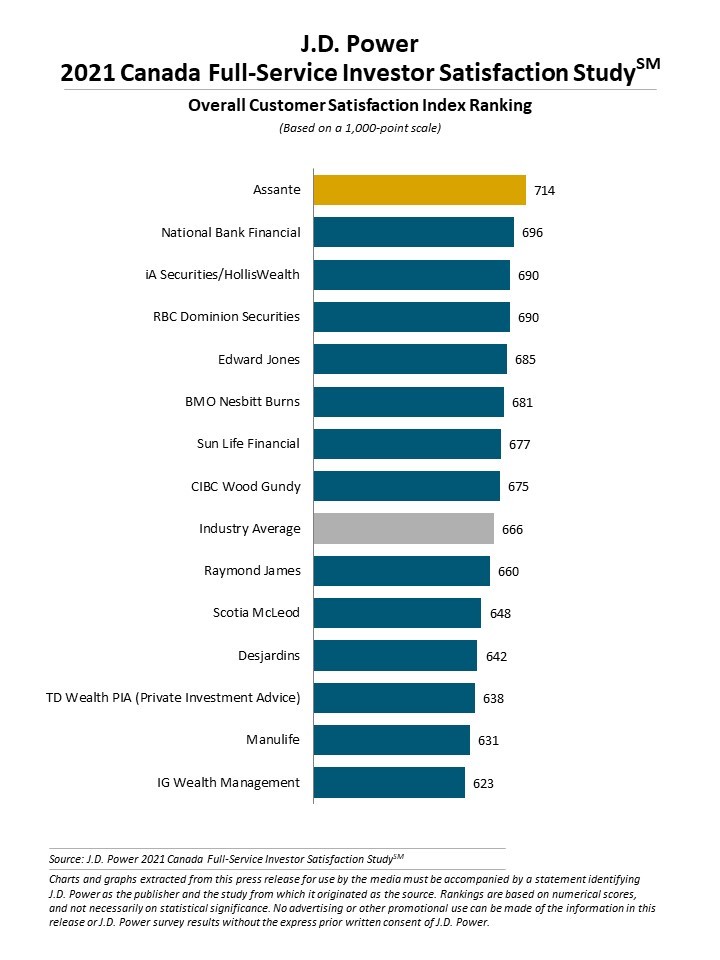Survey of investors at full-service firms reveals need to accommodate values and specialized needs

Full-service wealth management firms that want to maintain their business today and ensure its growth tomorrow must be unequivocal about their commitment to ESG investing, according to a new survey from J.D. Power.
In its newly released 2021 Canada Full-Service Investor Satisfaction Study, J.D. Power found that compared with millennial and Gen Z investors who don’t perceive their investment firms’ commitment to ESG, those that do are twice as likely to increase their investment (31% vs. 16%, respectively).
Among investors under age 40, 22% can clearly see their full-service investment firm’s dedication to ethical investing, while 46% said they’re either not sure or do not know whether their firm has such a commitment. The trend holds broadly as well for other age groups, J.D. Power said.’
The need to display strong commitment to ESG is especially important to younger investors, the survey added. It found those who strongly believe their investment firm is all in on ESG are twice as likely to act as avid ambassadors, while those who don’t see a commitment become detractors.
“We are at the tipping point of a massive generational wealth transfer. Investors in Canada—especially younger ones—increasingly want their investments to align with not only their financial goals but also their values,” said Mike Foy, senior director and head of wealth intelligence at J.D. Power. “Wealth management firms and advisors have a critical role to play in helping them do this, and they can’t afford to wait for clients to ask them about it.”

Looking outside ESG, around two fifths of investors (36%) reported that their firms are satisfying all their wealth management needs. When investors are using more advanced offerings related to their needs, including estate planning and philanthropy, the perception of their needs being met rises from 32% to 43%.
Among a cohort of investors that consists of pre-boomers and boomers, three fifths (59%) said their advisor had not asked them about the needs of beneficiaries. Only a fourth (23%) said the advisor kicked off a conversation between the client and their beneficiary.
The survey also offered some insights on how COVID-19 impacted investors. Two fifths of all respondents (40%) said they’re financially worse off today than before the pandemic.
Thirty per cent of Gen X and Boomer investors said they’ve made changes to their finances over the past year, while nearly twice as many millennial and Gen Z investors by percentage (57%) said the same. From a wealth perspective, a third of affluent investors (33% of those with more than $500,000 in assets) said they’ve had to adjust their financials because of COVID-19.
The results also pointed to an acceleration in digital engagement among investors under 40. Those respondents, J.D. Power said, have considerably raised their usage of digital channels to interact with their advisor of firm. When asked which channels are being used more often, that group most frequently cited email (29%), mobile apps (22%), and websites (20%).



